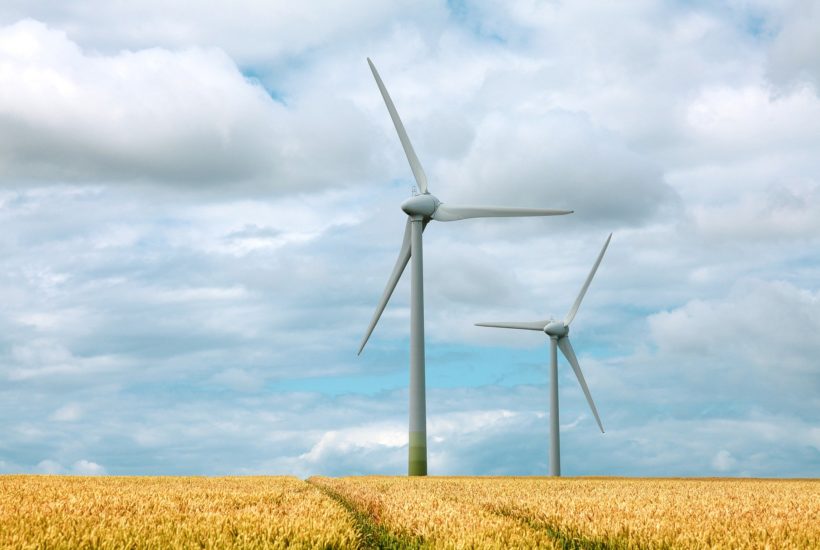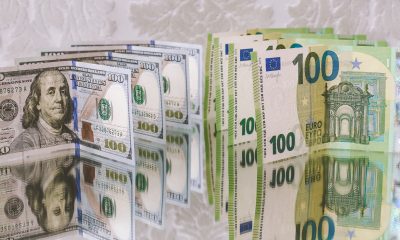Featured
ESG funds in Germany break the €100 billion mark
An analysis of selected mature ESG markets in the EU based on Morningstar data showed that some countries appear to have stricter standards for their sustainable funds than others. Germany is one of the European countries most committed to sustainability goals. The German ESG funds market grew steadily in the last years, and just recently exceeded the $118.4 billion (€100 billion) mark.

The ESG fund market in Germany is growing dynamically: the assets invested in sustainable funds have now exceeded the $118.4 billion (€100 billion) mark. Approximately half of this is in mutual funds.
Also the new business increased strongly. In the first half of 2020, sustainable funds registered $8.5 billion (€7.2 billion) according to the BVI. Of this amount, sustainable mutual funds alone contributed $9.12 billion (€7.7 billion). Compared with the first half of 2019, this represents an increase of 160 percent. At the same time, $4 billion (€3.4 billion) flowed out of non-sustainable funds.
Read more details about the sustainable investment market in Germany and be the first to find the latest economic news in the world with our companion app, Born2Invest.
A partial result of a BVI study on sustainability funds
The “Guidelines for Responsible Investing” formulated in the BVI as early as 2012 have set in motion a development in the industry that is now producing impressive results: Today, over 96 percent of the securities fund portfolio is managed by BVI members who apply the United Nations Principles for Responsible Investment (UN PRI).
An analysis of selected mature ESG markets in the EU based on Morningstar data also shows that some countries appear to have stricter standards for their sustainable funds than others. For example, only Germany, Sweden, and Norway have funds that invest while applying the exclusion criteria such as nuclear power, coal, outlawed weapons, tobacco, and serious violations of the UN PRI. The Netherlands, France, and England, on the other hand, do not have such sustainability funds. This is the partial result of a BVI study that will be published soon.
In Germany, the trend towards ESG is unbroken
“The trend towards sustainable investments is unbroken in Germany. So that this remains in such a way, we advocate for regulation, which strengthens this development instead of weakening it, said Thomas Richter, General Manager of the German fund federation BVI.
“Sustainability regulation must create clear standards.” A stubborn adherence to the timetable of the disclosure regulation could therefore not exist from the view of the BVI. Richter continued: “The market players in some EU member states seem to believe that they can agree with the supervisors on a “comply or ex-plain” approach and provide investors with only parts of information. This is not our legal understanding, it prevents a level playing field within the EU and it confuses investors.”
Funds must provide information about ESG
By the time the ordinance comes into force on March 10th, 2021, funds must include templates for information on sustainability in their sales prospectuses. The templates will be developed by the ESAs and will be available by the end of January 2021 at the earliest.
The fund companies have just five weeks to adjust the investor information. In order to establish uniform standards across Europe, the BVI calls for the start of the disclosure regulation to be postponed to the beginning of 2022. That request is also in order to enable synchronization with the entry into force of further taxonomy information obligations and not to hinder the sale of the products.
__
(Featured image by Demiahl via Pixabay)
DISCLAIMER: This article was written by a third party contributor and does not reflect the opinion of Born2Invest, its management, staff or its associates. Please review our disclaimer for more information.
This article may include forward-looking statements. These forward-looking statements generally are identified by the words “believe,” “project,” “estimate,” “become,” “plan,” “will,” and similar expressions. These forward-looking statements involve known and unknown risks as well as uncertainties, including those discussed in the following cautionary statements and elsewhere in this article and on this site. Although the Company may believe that its expectations are based on reasonable assumptions, the actual results that the Company may achieve may differ materially from any forward-looking statements, which reflect the opinions of the management of the Company only as of the date hereof. Additionally, please make sure to read these important disclosures.
First published in finanzen.net, a third-party contributor translated and adapted the article from the original. In case of discrepancy, the original will prevail.
Although we made reasonable efforts to provide accurate translations, some parts may be incorrect. Born2Invest assumes no responsibility for errors, omissions or ambiguities in the translations provided on this website. Any person or entity relying on translated content does so at their own risk. Born2Invest is not responsible for losses caused by such reliance on the accuracy or reliability of translated information. If you wish to report an error or inaccuracy in the translation, we encourage you to contact us.

-

 Markets1 week ago
Markets1 week agoWeather-Driven Supply Outlook Lifts Coffee Markets in Brazil and Vietnam
-

 Business7 days ago
Business7 days agoTopRanked.io Weekly Affiliate Digest: What’s Hot in Affiliate Marketing [Best Technology Affiliate Programs]
-

 Fintech2 weeks ago
Fintech2 weeks agoFintech Alliances and AI Expand Small-Business Lending Worldwide
-

 Business2 days ago
Business2 days ago2.5 Billion People Watch Quiz Shows Every Day. Masters of Trivia (MOT) Is Letting Them Compete























